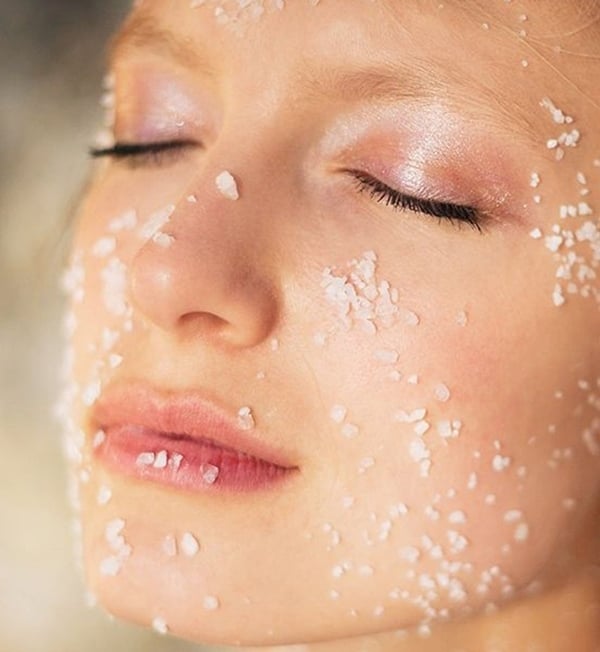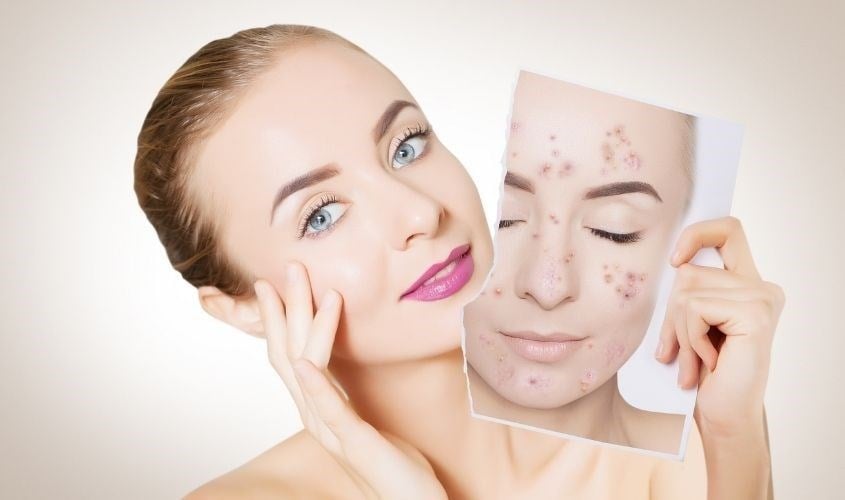Sea salt is an incredible, versatile ingredient with numerous benefits for our skin and overall well-being. Its therapeutic properties range from soothing skin conditions such as eczema and psoriasis to exfoliating and cleansing the skin, making it a natural, safe, and effective solution when used appropriately.
The Benefits of Sea Salt
Natural sea salt, especially from the deep ocean, is rich in essential minerals for the skin, including magnesium, calcium, potassium, zinc, and selenium. These minerals possess antibacterial properties and help improve various skin conditions, such as oily skin, itching, or infections.

Sea salt is a natural, safe, and effective solution when used correctly.
Using sea salt can help alleviate dry skin, infections, cracks, and support mineral balance in the body, especially for those suffering from allergic dermatitis.
Antibacterial Properties and Support for Dermatological Treatments
Natural sea salt has antibacterial qualities that help fight acne-causing bacteria and reduce inflammation. For individuals with psoriasis or psoriatic arthritis, balneotherapy, which utilizes natural sea salt such as Dead Sea salt or sea salt, has been proven to reduce pain, soften the skin, and aid in the removal of scales.
Minerals like sulfur in sea salt help break down psoriatic scales, while magnesium reduces skin irritation and supports cell regeneration.
Relieving Allergies and Improving Blood Circulation
Sea salt helps alleviate itching, inflammation, and allergic reactions by reducing IgE antibodies and histamine levels. Additionally, soaking in warm sea salt water promotes blood circulation, providing the skin with necessary oxygen and nutrients, resulting in smoother and more radiant skin.

Sea salt helps reduce itching, inflammation, and allergic reactions by lowering IgE antibodies and histamine levels.
Exfoliation and Deep Cleansing
One of the standout benefits of sea salt is its exfoliating ability. When used as a physical exfoliant, sea salt helps remove dead skin cells, unclogs pores, and enhances the absorption of skincare products.
However, it’s important to note that exfoliating with sea salt may not be suitable for facial skin or sensitive skin types as it can cause irritation. Instead, consider using sea salt for the body or thicker-skinned areas.
Treating Dandruff
Sea salt isn’t just beneficial for the face; it can also be used to treat dandruff. It stimulates blood circulation in the scalp, removes excess oil, and prevents fungal growth.
Hair and Scalp Protection
Mix a small amount of salt and alum with warm water, then apply it evenly to the scalp and massage for a few minutes. Wrap your hair with a clean towel for about 10 minutes, then rinse with warm water. This will relieve scalp itching, reduce dandruff, and lessen hair fall. You can do this twice a month for healthy hair or more frequently if you’re experiencing hair loss or severe dandruff.
- Boil 2 cups of water.
- Add 1 teaspoon of sea salt.
- Let it cool, and store it at room temperature for future use.
Sea salt can address various skin concerns, from acne and inflammation to dry or damaged skin. However, it’s essential to listen to your skin and consult a dermatologist if needed. When used correctly, sea salt becomes an ideal companion for achieving healthy and glowing skin.
“Boost Your Skin’s Defense: A Guide to Skin Care During Beach Vacations”
“Staying hydrated is essential for healthy, glowing skin. Quench your skin’s thirst with pure water, fresh fruit juices, or refreshing drinks like coconut water and lemonade. These beverages not only hydrate but also provide a boost of vitamins, giving your skin the nourishment it needs to truly flourish.”





































